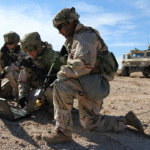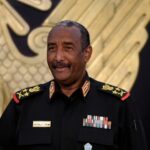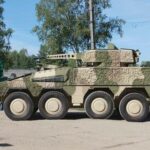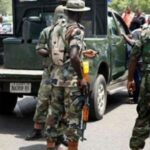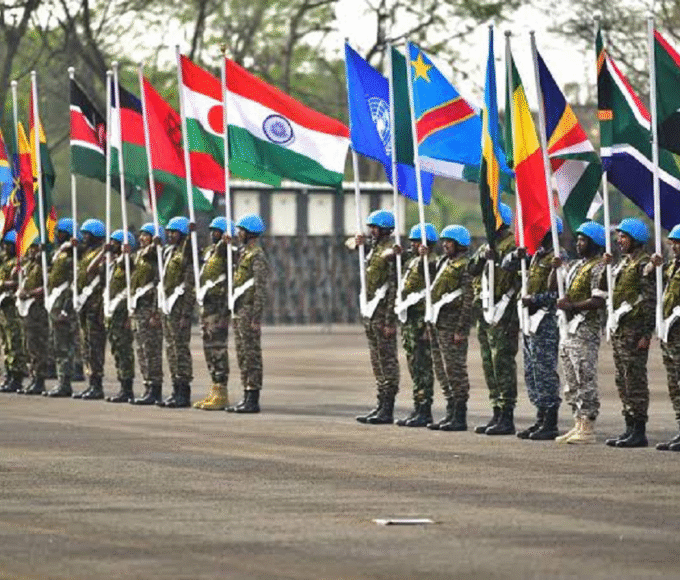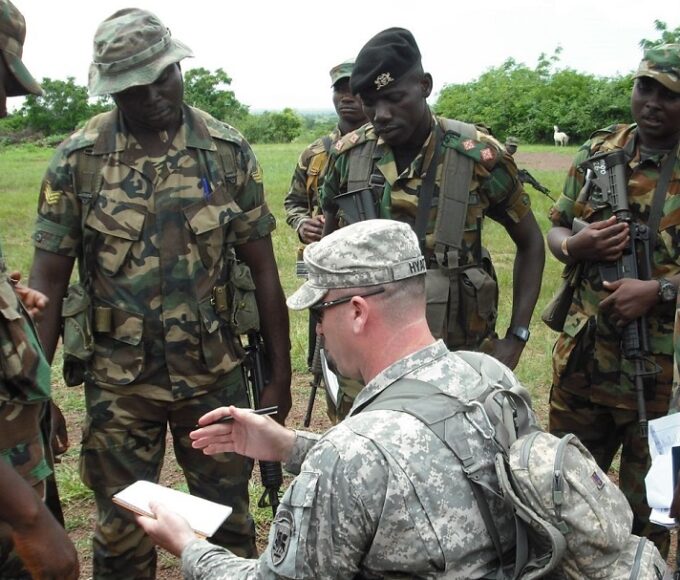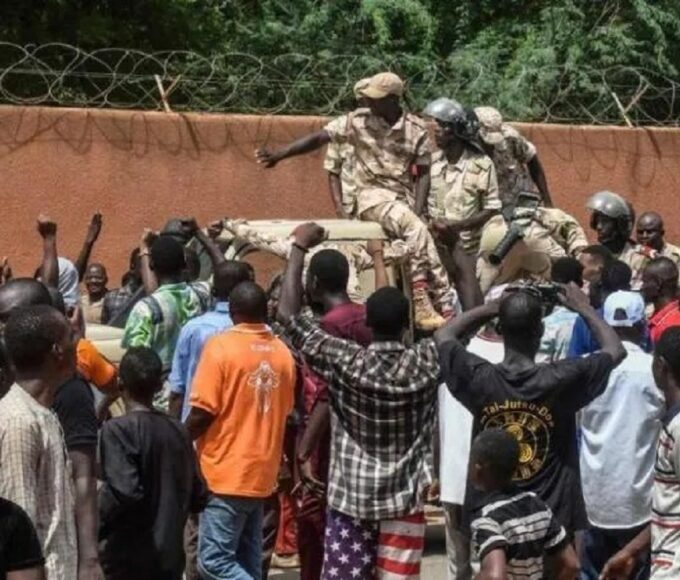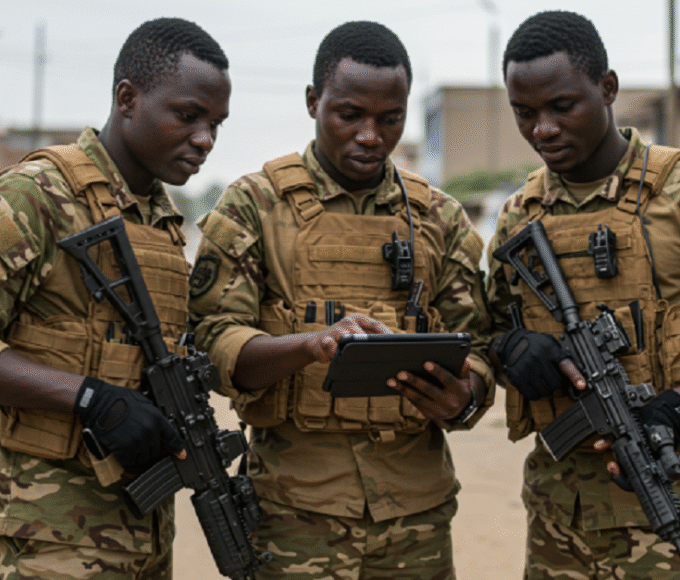General Christopher Musa: Navigating Nigeria’s Military Through Asymmetric Frontlines
In the restless corridors of West Africa’s security landscape, Nigeria bears the weight of regional responsibility and national resilience.

In the restless corridors of West Africa’s security landscape, Nigeria bears the weight of regional responsibility and national resilience. Ranked 39th globally in the 2024 Global Firepower Index with a PowerIndex score of 0.5619, Nigeria maintains one of Africa’s most battle-hardened and strategically significant militaries. At the helm is General Christopher Gwabin Musa, the Chief of Defence Staff—a seasoned leader guiding Nigeria’s defence apparatus through a period of complex transformation and operational demands.
Guardian of a Troubled Terrain
Spanning over 923,000 square kilometres and home to more than 220 million people, Nigeria is Africa’s most populous nation—and one of its most security-challenged. With over 120,000 active personnel, 82,000 paramilitary troops, and over 80,000 reservists, Nigeria’s Armed Forces operate across multiple hostile theatres: from the Boko Haram insurgency in the northeast to piracy in the Gulf of Guinea, separatist agitations in the southeast, and transnational crime along its porous borders.
Under General Musa’s watch, the Nigerian military has had to balance internal counter-insurgency operations with regional stabilisation efforts—an enormous task made more complex by limited resources and rising public expectations.
From Counter-Insurgency Frontlines to Strategic Command
Born in Sokoto State in 1967, General Musa graduated from the Nigerian Defence Academy as part of the 38th Regular Course. His ascent through the ranks has been defined by direct battlefield experience. As Theatre Commander of Operation Hadin Kai, he played a crucial role in shifting the dynamics of Nigeria’s long-standing war against Boko Haram and ISWAP factions in the northeast.
Respected for his operational clarity, humane leadership, and uncompromising professionalism, Musa emerged from those theatres with insights that now drive his strategic vision for the entire Armed Forces.
Modernising a Fighting Force
Recognising Nigeria’s pivotal role in West African security, General Musa is a vocal advocate of multilateral defence cooperation. Nigeria remains a leading contributor to ECOWAS standby forces and the Multinational Joint Task Force (MNJTF) combating insurgents in the Lake Chad Basin. Musa has reiterated Nigeria’s commitment to peacekeeping, maritime security, and regional stability, especially amid political crises in neighbouring states like Niger and Chad.
His diplomatic outreach also includes expanding ties with global partners, from the U.S. and UK to China and Turkey, focusing on capacity building, technology transfer, and joint training.
A Leader Grounded in Strategy and Purpose
Though not given to fanfare, General Musa’s leadership has been marked by quiet confidence and deliberate reform. His strategic approach blends real-time battlefield awareness with a long-term vision to restore the military’s credibility as a professional and apolitical institution.
With Nigeria navigating one of its most dangerous security eras since the civil war, Musa’s stewardship is critical. His ability to think beyond conventional doctrines and drive a military capable of adapting to hybrid threats will define both his legacy and Nigeria’s defence posture in the years ahead.
General Christopher Musa is not simply leading Nigeria’s Armed Forces—he is reshaping their purpose, focus, and future.
As one officer observed at a recent joint command briefing:
“General Musa doesn’t just fight threats—he redefines how we prepare for them.”
Recent Posts
Categories
- Air & Aerospace16
- Border Security15
- Civil Security4
- Civil Wars4
- Crisis5
- Cyber Security8
- Defense19
- Diplomacy19
- Entrepreneurship1
- Events5
- Global Security Watch6
- Industry8
- Land & Army8
- Leadership & Training5
- Military Aviation5
- Military History27
- Military Speeches1
- More1
- Naval & Maritime9
- Resources2
- Security12
- Special Forces1
- Systems And Technology9
- Tech6
- Uncategorized3
- UNSC1
- Veterans6
- Women in Defence9
Related Articles
INDIA’S GROWING MILITARY PARTNERSHIPS WITH AFRICA
India’s engagement with Africa is undergoing a quiet but powerful transformation. What...
ByKing Richard Igimoh, Group Editor ALOOctober 14, 2025EVOLVING HORIZONS: TRAINING THE AFRICAN SOLDIER IN A CHANGING LANDSCAPE
The training of African soldiers has undergone a profound transformation in recent...
ByKing Richard Igimoh, Group Editor ALOOctober 2, 2025COLD WAR AFRICA: PROXY WARS AND THEIR IMPACT
The Cold War in Africa, spanning from the late 1940s to the...
ByKing Richard Igimoh, Group Editor ALOSeptember 26, 2025AI AND AFRICA’S MILITARY INTELLIGENCE: PROMISE AND PERIL IN A TRANSFORMING SECURITY LANDSCAPE
Africa’s military landscape is entering a new chapter, shaped by the rapid...
ByKing Richard Igimoh, Group Editor ALOSeptember 22, 2025



